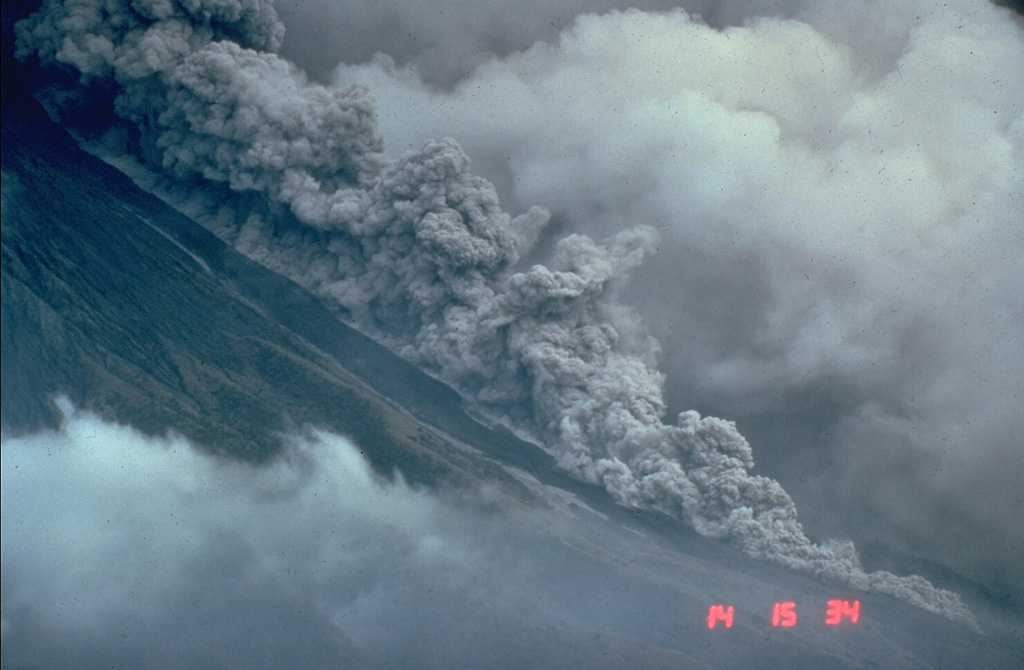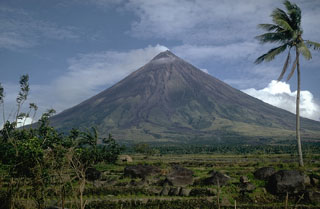Image GVP-01788

Pyroclastic flows are hot avalanches of rock, ash, and gas that sweep down the flanks of volcanoes at high velocities. This photo shows a relatively small pyroclastic flow at Mayon volcano in the Philippines on 23 September 1984. These hot, ground-hugging flows can travel at velocities to about 100 km/hour and reach areas well beyond the flanks of a volcano. Their high temperatures make them lethal to anything in their path. Hot ash plumes rise above the denser basal portion that can contain abundant solid blocks and ash.
Photo by Chris Newhall, 1984 (U.S. Geological Survey).
![]() This image is made available as a Public Domain Work, but proper attribution is appreciated.
This image is made available as a Public Domain Work, but proper attribution is appreciated.
Galleries: Pyroclastic Flows
Keywords: pyroclastic flow | pyroclastic density current (PDC) | ash

Mayon
